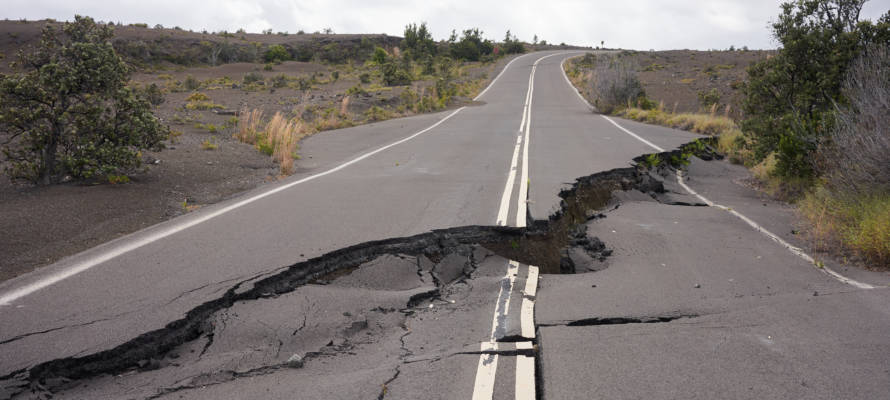The temblors follow devastating earthquakes that have killed more than 20,000 people in Turkey and Syria.
By JNS.org
Two earthquakes shook Israel on Wednesday evening, measuring 3.3 and 3.9 on the Richter scale, respectively. The first was in central Israel and the second was in Lebanon but felt across the Golan Heights.
The temblors followed a 3.5 magnitude quake overnight Tuesday centered 15 kilometers (9 miles) southeast of Ariel, which was felt in Jerusalem and surrounding areas.
There have been no reports of injuries or damage, aside from limited cracks in the walls of residential apartments.
The three quakes, occurring within a 24-hour span, come on the backdrop of the devastating earthquakes that have killed nearly 20,000 people in Turkey and Syria.
The Knesset Internal Affairs and Environment Committee earlier this week called for an emergency meeting to review the country’s earthquake preparedness in light of the devastation in Turkey and Syria. Concurrently, Israeli Prime Minister Benjamin Netanyahu has directed National Security Council head Tzachi Hanegbi to “update and reiterate the steps we need to take.”
State Comptroller Matanyahu Englman on Monday urged the government not to delay, saying the deadly earthquakes in the region should be viewed as a warning.
“Do not wait for such a disaster to occur in Israel. Act immediately on the country’s preparedness for earthquakes,” he said in a statement, adding that it was perhaps the last opportunity to do so.
Israel is located along the Great Rift Valley, an active fault line that runs from the Red Sea to the Jordan River, determining the border between Israel and Jordan. This geologic fault presents several significant hazards for the area, including frequent minor earthquakes and the potential for more serious seismic events.
Indeed, Israel had a long history of earthquakes, with a major one occurring approximately every 100 years. The last major earthquake to hit was in 1927, 96 years ago. That quake, which had a magnitude of 6.2, claimed 284 lives and injured 940.
A 2018 report by the previous comptroller estimated that a severe earthquake could result in 7,000 casualties and leave 170,000 people homeless. A report from last year found that 600,000 buildings in Israel do not meet the standard for earthquake resistance.
Meanwhile, Israeli Prime Minister Benjamin Netanyahu on Wednesday commended the work of the IDF search and rescue delegation in earthquake-stricken Turkey, which has saved several people from collapsed buildings since starting its work the previous day.
“You are representing the mission with the most experience on the international level. You have much experience, which has proven itself. You are carrying out a humanitarian mission of the highest order and are bringing much honor to us and the State of Israel and are showing Israel’s true face to the world,” Netanyahu told Col. (res.) Golan Vach of the IDF Home Front Command, the head of the delegation, in a phone call.
An Israel Defense Forces delegation arrived in Turkey on Wednesday morning to set up a field hospital in the wake of the massive earthquakes this week that have so far claimed the lives of nearly 20,000 people there and in neighboring Syria.
The delegation is composed of more than 230 medical and emergency response experts and was sent as part of the IDF’s “Operation Olive Branches” humanitarian effort.
The team will also assist the 150-member Home Front Command delegation.
The United Hatzalah of Israel emergency medical services organization has also sent a delegation of 25 first responders to Turkey.
A 7.8-magnitude earthquake ripped through Turkey and Syria early Monday, toppling buildings and causing shockwaves felt across the region, including in Cyprus, Lebanon, Egypt, Jordan, Iraq and Israel.
